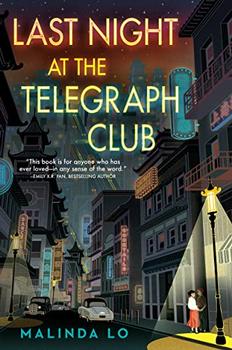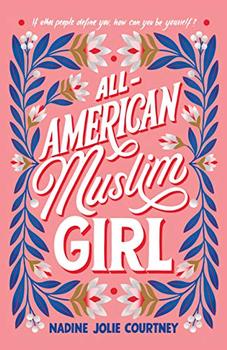Summary | Excerpt | Reading Guide | Reviews | Beyond the book | Read-Alikes | Genres & Themes | Author Bio

Kelly Loy Gilbert presents a beautiful narrative with myriad intertwined plotlines that explores the complications of learning the truth about where we come from while trying to figure out what we might yet become. Danny Cheng is a senior at Silicon Valley High School and has just received a full scholarship to Rhode Island School of Design. Life is, in many ways, good despite managing the guilt and aftermath he and his friends are wading through following a tragedy. However, all of that changes after his father loses his job and their family needs to move. Danny unearths a family secret – a sister who was born before his parents emigrated from China and had him. As Danny learns more about his family's past, things start to unravel, and he is forced to come face to face with the tenuous stability of his family's life, and how it might yet shape his future.
One of the most vital choices Gilbert makes is putting forth very unique characters, thus avoiding playing to stereotypes. Danny's family, though living in Silicon Valley, is not wealthy; though his father had a job at a university, his mother is a domestic worker. The community Danny is surrounded by is also largely, but not only, Asian American, lending a sense of authenticity and helping to establish a new norm in young adult literature in terms of how many non-white central characters can be in a novel and still be considered "relatable." Danny and his peers' lives are compounded by many different things: the death of a friend, anticipating changes that will occur once they all leave for college, different family pressures and dynamics, and navigating the boundaries and intersections of class and culture. Gilbert writes about the different facets of what it is to be an American teenager with remarkable simplicity: the complexity of the plot does not get in the way of the beauty of the narrative voice, while opening space for a different conversation about being an immigrant, or the child of immigrants, or walking multiple cultural and social lines.
Danny's voice and first-person perspective, interwoven with a second voice out of Danny's family's past, help to provide a braided story that slowly fills in the gaps in both the reader's and Danny's knowledge. They also help to ground the reader in the intricacies and interstices that might otherwise have been confusing or overwhelming, or even might have made the novel feel like an attempt at stock representation rather than the elevated and nuanced narrative that it is. Danny is relatable, as are his experiences, as he tries to find himself – both his past and his future. The novel is moving and emotional, and it provides a window into the soul without feeling preachy or didactic, or trying to define a certain kind of experience. Gilbert writes characters we want to stay invested in, and to grow with. If I have any criticism, it is that when I finished it, all I wanted was to read more, and to know what might happen next.
The real strength of Picture Us In the Light is how deftly Gilbert demonstrates that to have a powerful narrative a book doesn't have to fit neat categories because, after all, whose life does? She gives us the complexity of life itself: bad things happen, friendships change, we learn things about our parents we could have never imagined, lives fall apart and come together again. And in between all the interwoven good and bad, love and loss, joy and despair, science and art, we realize ourselves and our place in it all. So, this is a book about family and sacrifices and secrets, but also about love, and hope, and the need to believe that someday, we might find the people we need most again.
![]() This review was originally published in The BookBrowse Review in May 2018, and has been updated for the
September 2019 edition.
Click here to go to this issue.
This review was originally published in The BookBrowse Review in May 2018, and has been updated for the
September 2019 edition.
Click here to go to this issue.

If you liked Picture Us In The Light, try these:

Last Night at the Telegraph Club
by Malinda Lo
Published 2021
Acclaimed author of Ash Malinda Lo returns with her most personal and ambitious novel yet, a gripping story of love and duty set in San Francisco's Chinatown during the 1950s.

by Nadine Jolie Courtney
Published 2021
Allie Abraham has it all going for her - she's a straight-A student, with good friends and a close-knit family, and she's dating cute, popular, and sweet Wells Henderson.
Your guide toexceptional books
BookBrowse seeks out and recommends the best in contemporary fiction and nonfiction—books that not only engage and entertain but also deepen our understanding of ourselves and the world around us.